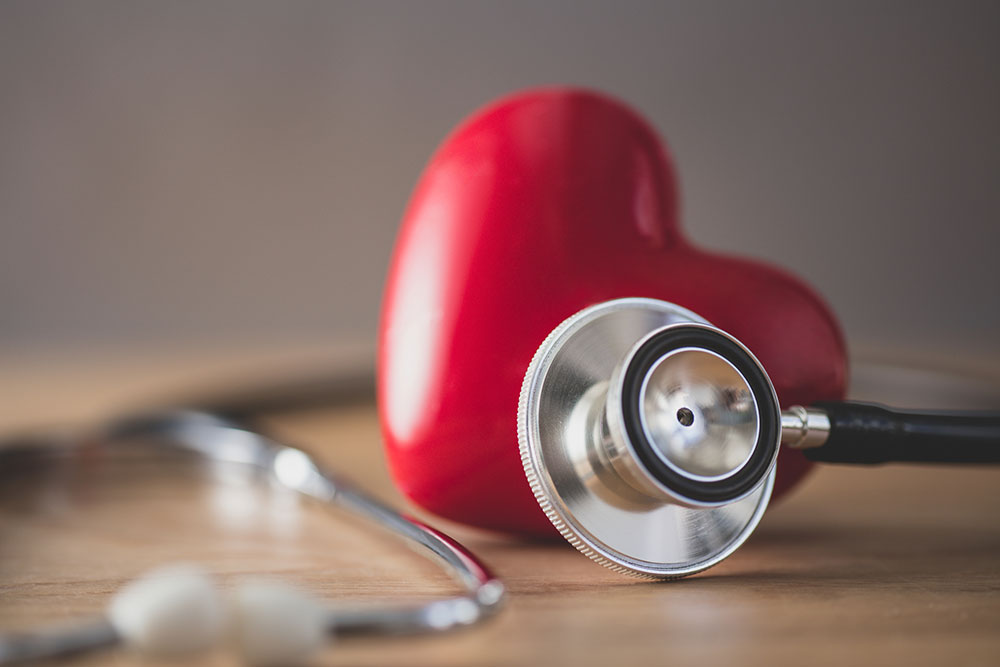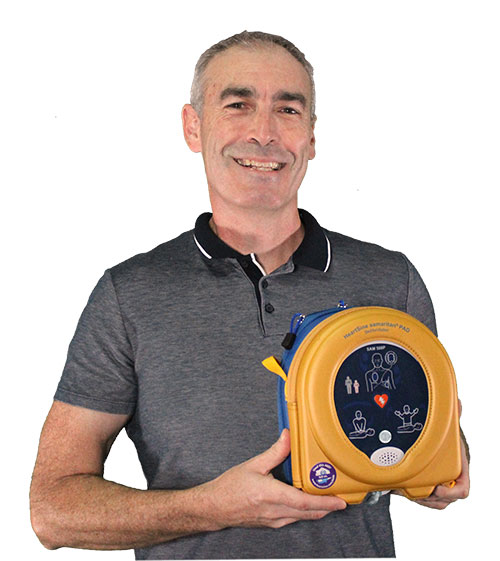Campaign to have life-saving devices near you
The original Yellow Wiggle is campaigning for automated external defibrillators in residential areas.

The original Yellow Wiggle Greg Page is one of just 10% of people who have survived a sudden cardiac arrest.
Life-saving intervention from bystanders saved Mr Page and inspired him to found Heart of the Nation, an initiative to raise sudden cardiac arrest survival rates and recognise businesses that have AEDs on site, ready to save lives.
“Two things that really played a key part in my survival were cardiopulmonary resuscitation (CPR) and the use of an AED, or automated external defibrillator,” Mr Page said.
“Those two points of intervention can mean the difference between life and death for somebody who’s in cardiac arrest.”
Mr Page has started a campaign to install publicly accessible AEDs in the community, where they’re needed most.
“Heart of the Nation Communities is a program that helps to get AEDs into residential areas where 80% of cardiac arrests happen,” he said.
Mr Page said the use of an AED to deliver an electrical shock to a patient’s heart could dramatically increase their chance of survival.
“When people have cardiac arrests in public places, their survival rate is much higher, up to 70 percent, because an AED is more commonly available for use within a crucial three-minute window,” he said.
“So, if we can equip communities with the ability to respond to a cardiac arrest with an AED and people know how to perform CPR, we believe there’ll be an upturn in survival rates here as well.”

Greg Page with an AED.
Mr Page said Heart of the Nation would assist neighbours to purchase an AED for their community.
“As part of the program, it works out to be about $80 each split among 40 houses – that’s less than the cost of two cups of coffee each year for each household over the device’s eight-year warranty,” he said.
“The community AED is available 24/7 within about 200m of your home, which is the optimal distance for you to grab the device and get it on the person within the crucial three-minute window,” he said.
“You can also use the Heart of the Nation app to call for an ambulance and alert a neighbour to deliver the AED so you can continue to provide CPR and give the person in cardiac arrest the best chance of survival.”
Mr Page said community AEDs were a cost-effective way to save lives.
“There are many stories of people around the world who have been saved by publicly accessible AEDs,” he said.
“We know they work and we need people to play that part between somebody going into cardiac arrest and the paramedics arriving, and when that happens, we’ll see an increase in survival rates in Australia.”
Click here to learn more about Heart of the Nation's campaign
Related topics
Things to note
The information in this article has been prepared for general information purposes only and is not intended as legal advice or specific advice to any particular person. Any advice contained in the document is general advice, not intended as legal advice or professional advice and does not take into account any person’s particular circumstances. Before acting on anything based on this advice you should consider its appropriateness to you, having regard to your objectives and needs.
Insurance Products (excluding Travel Insurance) are issued by RACQ Insurance Limited ABN 50 009 704 152 (RACQI) and arranged by RACQ Distribution Services Pty Ltd (RDS) ABN 35 116 361 650, AFSL 567130 and RDS' authorised representatives (including RACQ Operations Pty Ltd ABN 80 009 663 414, AR No. 234978 (RACQO)). Conditions, limits and exclusions apply.
Any advice provided by RDS and RACQO is general advice only and does not take into account your personal objectives, financial situation or needs and you will need to consider whether the advice is appropriate for you. Read the Product Disclosure Statement (PDS) before making a purchase decision on the product. You can also access our Target Market Determinations on this website.
RDS receives a commission from RACQI for the policies it arranges. RACQO receives fees paid for services it provides to RDS. Further details about remuneration are available on request prior to purchasing.
Banking and loan products issued by Members Banking Group Limited ABN 83 087 651 054 AFSL/Australian credit licence 241195 trading as RACQ Bank. Terms, conditions, fees, charges and lending policies apply. This is general advice only and may not be right for you. This information does not take your personal objectives, circumstances or needs into account. Read the disclosure documents for your selected product or service, including the Financial Services Guide and the Terms and Conditions, and consider if appropriate for you before deciding.
Except for RACQ Bank, any RACQ entity referred to on this page is not an authorised deposit-taking institution for the purposes of the Banking Act 1959 (Cth). That entity’s obligations do not represent deposits or other liabilities of RACQ Bank. RACQ Bank does not guarantee or otherwise provide assurance in respect of the obligations of that entity, unless noted otherwise.
RACQ Bank subscribes to the Customer Owned Banking Code of Practice which establishes higher standards than the law requires. The Code reflects modern consumer expectations and developments in approaches to issues such as consumer vulnerability, guarantors, and supporting customers through financial hardship. Please read our Customer Owned Banking Code of Practice page for more information.
RACQ Operations Pty Ltd (ABN 80 009 663 414 AR 000234978) and Members Travel Group Pty Ltd (ABN 45 144 538 803 AR 000432492) are acting as an Authorised Representative of the issuer of the insurance, Tokio Marine & Nichido Fire Insurance Co., Ltd. (ABN 80 000 438 291 AFSL 246 548). Any advice set out above is general in nature only, and does not take into account your objectives, financial situation or needs. Before purchasing any travel products, please consider the RACQ Travel Insurance Product Disclosure Statement (PDS) and the Target Market Determinations (TMDs) that apply to these products. Whilst the PDS outlines the Terms and Conditions of these products, the TMDs outline the intended class of customers that comprise the target market for these travel products. This will allow you to consider which products best suit your objectives, financial situation and needs and consider the products appropriateness to your personal circumstances. TMDs also outline matters involving the distribution and the review of these products. The PDS, Supplementary PDS and TMDs for each travel product can be found here.
